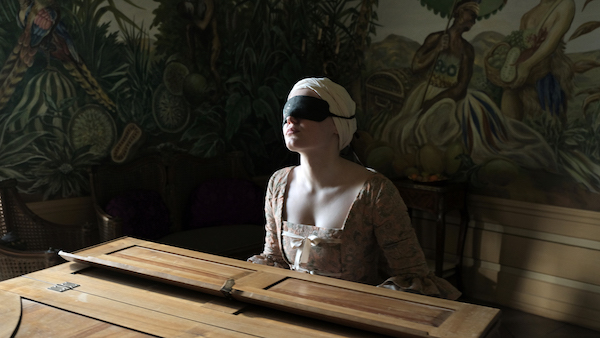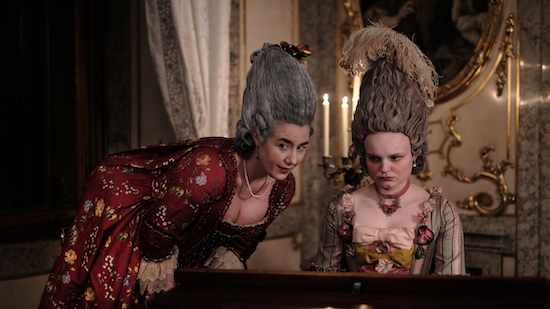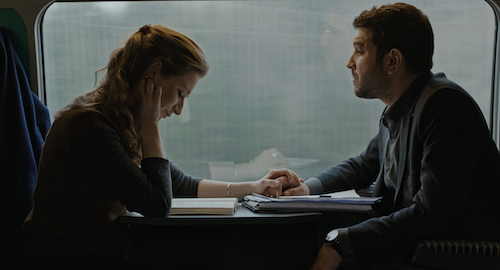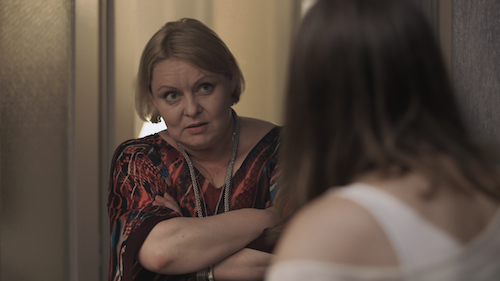Panorama Europe Film Festival

The 11th edition of the Panorama Europe film festival, co-presented by Museum of the Moving Image (MoMI) and the members of European Union National Institutes for Culture (EUNIC), will take place from Friday, May 3, through Sunday, May 19.
The 17 films screening this year, programmed by David Schwartz, MoMI curator-at-large, represent some of the continent’s most intriguing emerging directors, nine of them women. Included are both documentaries and fiction, many of them set in contemporary Europe, reflecting its current state of flux. Though the films tackle weighty subjects such as politics, history, labor, and feminism, their stories focus on the lives of individuals.
In addition to films from cinematically prolific countries such as Germany, Spain and France, there are entries from Malta, Slovakia, and Croatia, among other places that are not as widely represented on screen, providing welcome glimpses into those cultures.
Screenings will take place at the Museum of the Moving Image (36-01 35th Avenue, Astoria) and Bohemian National Hall (321 East 73rd Street, Manhattan).
The festival opens with the U.S. premiere of Mademoiselle Paradis, Barbara Albert’s excellent period drama, starring Romanian actress Maria Dragus as blind, 18th-century pianist Maria-Theresia Paradis. Though visually lush and authentic to its time, this mildly satirical film is also feminist in its depiction of a determined young woman fighting the expectations of her parents and patriarchal Austrian society.

Dragus is compelling and believable as the teenage von Paradis, who we first see playing piano with abandon for a crowd of Viennese aristocrats. The empress has given her parents (Lukas Miko and Katja Kolm) a substantial pension for her disability, and the couple exploit “Resi” via performances of piano playing as well as dancing. Audiences are impressed by her talent, but openly pity her, generally treating the teen as a freakish outcast.
As in real life, famed German doctor Franz Anton Mesmer (Devid Streisow) agrees to treat Marie-Teresia at his compound, where people with various afflictions receive his cutting-edge (and controversial) magnetism therapy. Miraculously, his approach seems to work and Marie-Teresia slowly recovers her vision. However, due to this new sensory wiring, her piano playing suffers as does attendance at her concerts. Moreover, rumors about Mesmer’s methods and supposed improprieties with his patient abound; the triumph is short-lived for them both. The fact that this striking, sensual film is based on the life of an actual person (Paradis would go on to compose music and tour the world) makes it all the more fascinating.
Mademoiselle Paradis screens 7 pm Friday, May 3, at MoMI (with Maria Dragus in person (followed by discussion and reception); and 7 pm on Monday, May 6, at Bohemian Hall.

Among the other films screening at the festival are Abigail Mallia’s Limestone Cowboy, a raucous, comedic portrait of a wildly eccentric, America-worshipping Maltese man (Paul Portelli) who is convinced that he should run for the office of Prime Minister. In addition to a coterie of rough drinking buddies, who encourage his aspirations, Karist must contend with his respectable son John (Davide Tucci), who is mortified by his father’s shenanigans. Though the film and its characters are often over-the-top, even cartoonish, it’s fascinating alone for its depiction of the sociopolitical climate of the small island nation, where the Catholic Church wields outsize power. Also culturally insightful is Saïd Hamich’s Return to Bollène, in which a young French Moroccan man (Anas El Baz) returns to his hometown in southern France with an American fiancée, after years of living abroad. In doing so, he must confront both his family’s complicated dynamics and a culture from which he has cut himself off, as well as a city that has swung to the far right politically. It’s a bittersweet homecoming, to say the least.

From Croatia, Lada Kamenski (co-directed by Sara Hribar and Marko Santic) explores a universal theme. The film stars Frano Mašković as a director whose feature debut is inspired by his aunt and other women who once worked in the region’s textile factories. He invites three middle-aged actresses to his home for what they think is an informal reading, but winds up being much more. Ksenija Marinković, Nataša Dorčić, and Doris Šarić-Kukuljica are excellent as three women whose personal and professional lives collide in the course of the evening.
For the full schedule of festival screenings, click here.
—Marina Zogbi

